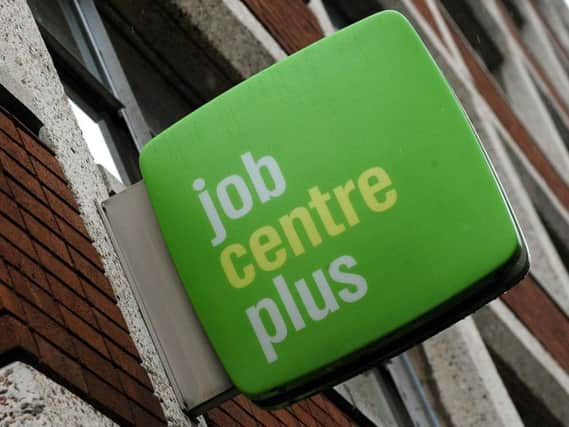Benefits claims rise across the Fylde as national unemployment increases.


Nationally, the level of UK unemployment increased by 22,000 to 1.31 million for the quarter, as the proportion of people out of work also increased, giving a rate of 3.9 per cent. Analysts had expected it to stay at 3.8 per cent.
Meanwhile, the jobs market had an eighth consecutive month of falling vacancies.
Advertisement
Hide AdAdvertisement
Hide AdThe number of jobs available fell by 11,000 to 813,000, the lowest level of vacancies since November 2017.
The decline in employment was linked to the falling number of people under 25 in work, while all other age groups saw an increase in employment.
Locally, the number of people claiming work related benefits such as Universal Credit rose across the Fylde coast in September.
In the Blackpool North and Cleveleys constituency, there were 2,245 claimants, up 1.4 per cent on the same month last year.
Advertisement
Hide AdAdvertisement
Hide AdIn Blackpool South there were 3,260, up by 1,260 (2.4 per cent) on last year. In Fylde there were 1,025, up 0.8 per cent. Lancaster and Fleetwood had 1,505, up 0.5 per cent and Wyre and Preston North had 650, up 0.5 per cent.
Mr Marsden said while Boris Johnson was talking about jobs and skills in his Queen’s speech his government was failing to act. He said too many people were having to hold down two or three poorly paid jobs.
The figures from the Office of National Statistics also showed that UK employment suffered its sharpest decline in more than four years in the three months to August.
The number of people in work declined by 56,000 to 32.69 million in the three months to August.
Advertisement
Hide AdAdvertisement
Hide AdThe slump was significantly below forecasts by economists, who had predicted a 26,000 rise in employment.
The quarterly decline in employment was the heaviest fall since May 2015, when the level of employment slid by 65,000.
However, earnings continued to grow ahead of inflation, but the rate of wage growth slowed to 3.8 per cent from 4 per cent last month. Analysts had predicted that wage growth would stay at 4 per cent.
Mims Davies, minister for employment, said: "As the UK prepares to leave the EU at the end of this month, these latest figures are a welcome example of the underlying strength of our economy and world-leading workforce.
"Opportunities for young people and women continue to grow, with youth unemployment almost halved since 2010 alongside over 200,000 more women in work in the last year."